“Many historians identify Japan’s invasion of Manchuria in 1931 as the beginning of World War II. In their drive to achieve political and economic parity with the West, Japanese leaders in the 1920s decided they could no longer tolerate being resource-dependent on Europe and the United States. Japan looked longingly on Manchuria, with its abundant deposits of coal and iron ore. Japan also looked at Manchuria, which was relatively unpopulated, as a place where Japan’s surplus population could be settled. Back in 1905, as a result of its victory in the Russo-Japanese War, Japan won treaty rights to control and militarily defend the South Manchurian Railway. In 1931, needing a pretext to justify an invasion of Manchuria, Japan charged Chinese forces with bombing the railroad depot at Mukden.
Manchukuo (Manchuria), c. 1940, with the four major cities – Tsitsihar, Harbin, Mukden and Port Arthur – highlighted. The postcard caption refers to 10,000 kilometers of roads, 20,000 kilometers of railway and 5,000 kilometers of coastal and sea ferry routes.
“Japan’s Kwangtung Army, without authorization of the government in Tokyo. marched on Mukden, seized the Chinese military barracks there, and then assumed control of the city. From there, Japanese armies pushed north rapidly, seizing a number of Manchurian cities. In the wake of the invasion, Japanese engineers, accountants, and transportation specialists poured into Manchuria and began organizing the extraction of coal and iron ore.
“The Chinese government protested the invasion and appealed to the League of Nations for support, but the League was pathetically weak and in no position, economically or militarily, to defy the Japanese invasion. The other major powers – France, Great Britain, and the United States – denounced the invasion and offered moral support to China, but Chinese leaders received nothing more than platitudes. Secretary of State Henry Stimson of the United States announced the so-called Stimson Doctrine, which condemned the invasion and refused to extend diplomatic recognition to the new Manchukuo government of Manchuria. But that was the extent of the American opposition to the invasion of Chinese territory. It would take another ten years, and the bombing of Pearl Harbor, before the United States would take up arms.”
– Historical Dictionary of the Great Depression, 1929-1940, by James Stuart Olson, 2001
Mukden, Manchuria (Manchukuo), c. 1940.
1940s • Government • Historic Events • Patriotism/Military
Tagged with: Manchukuo, Manchuria, Russo-Japanese War
Please support this site. Consider clicking an ad from time to time. Thank you!


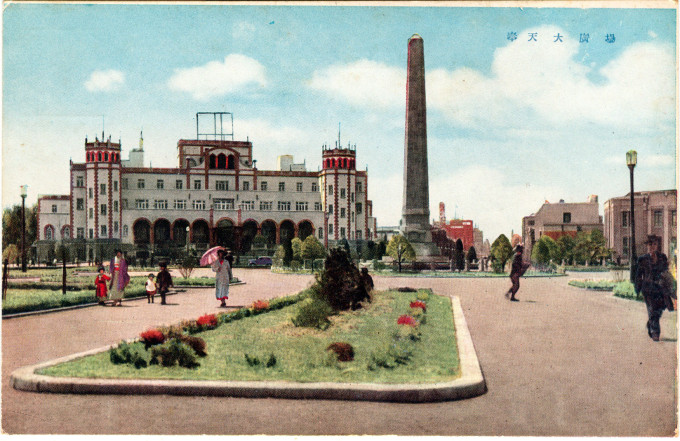
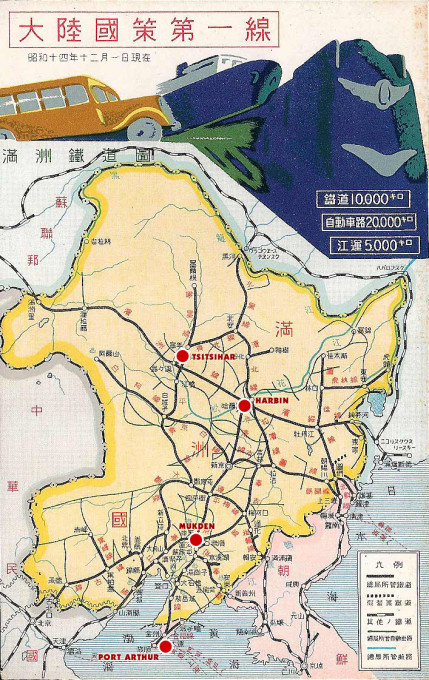
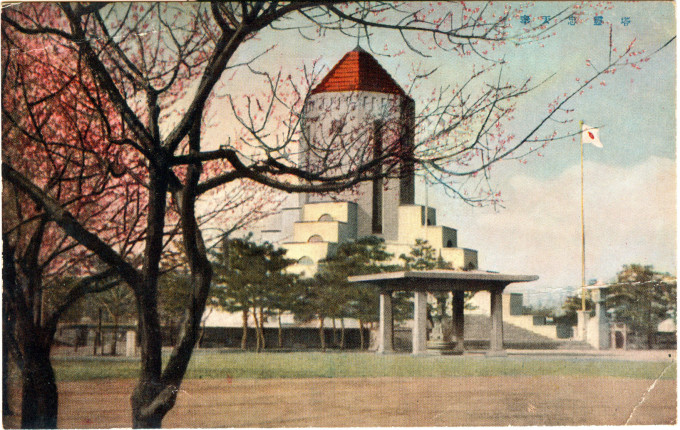
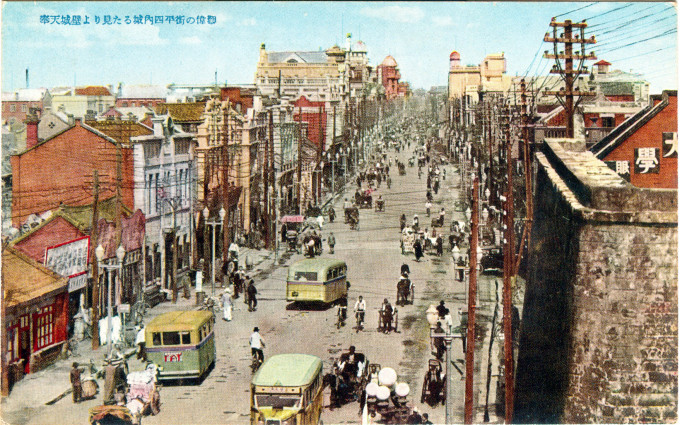
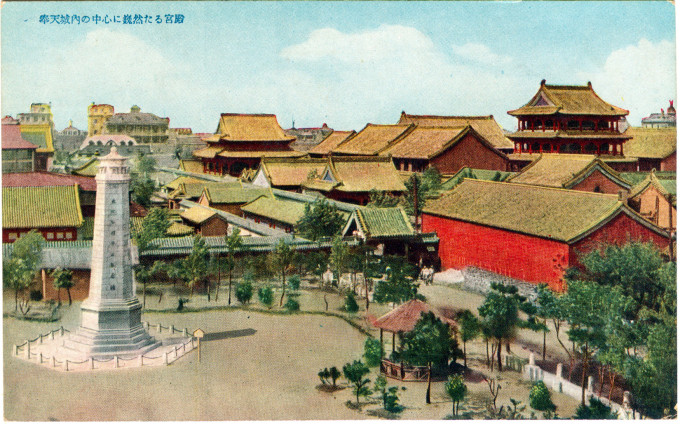
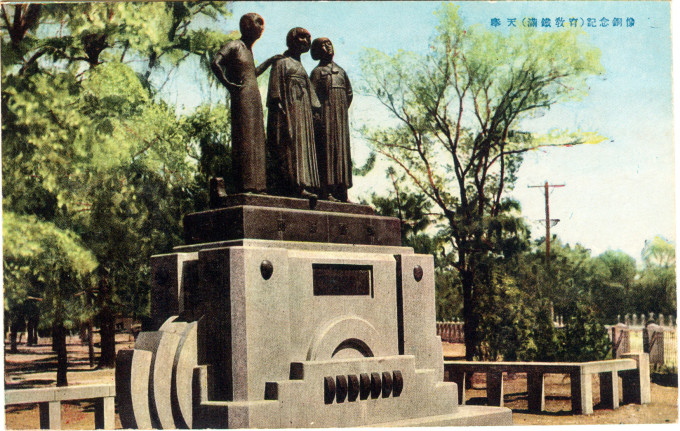
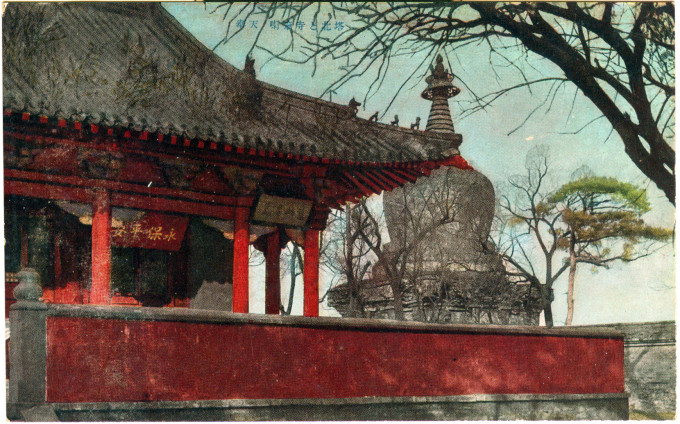
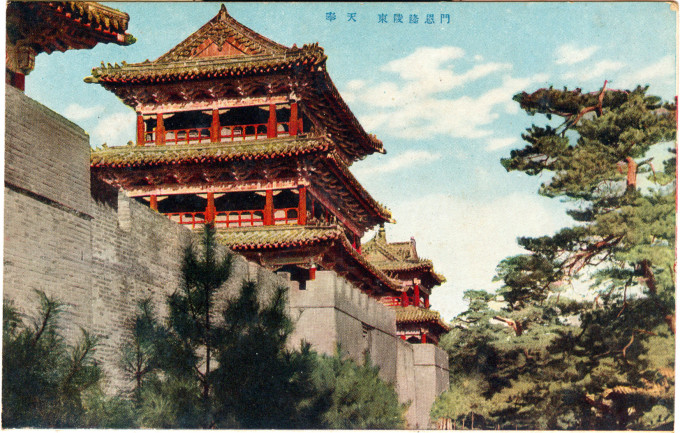
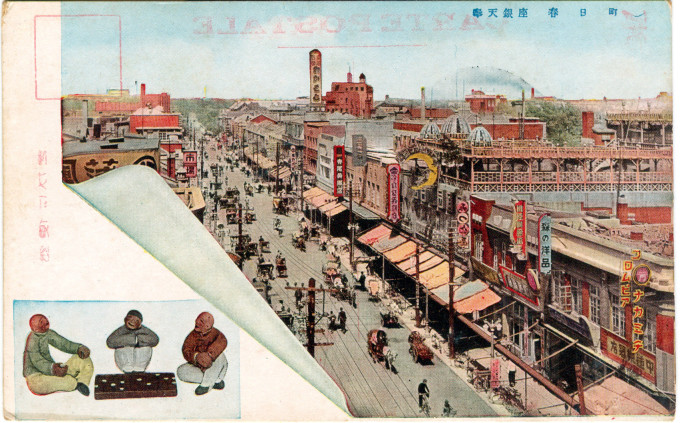
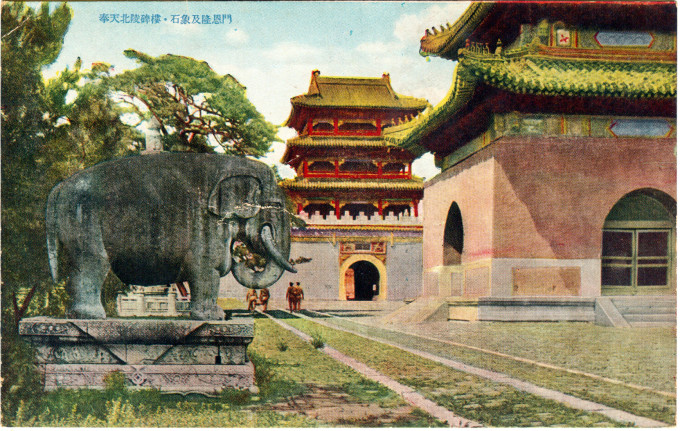
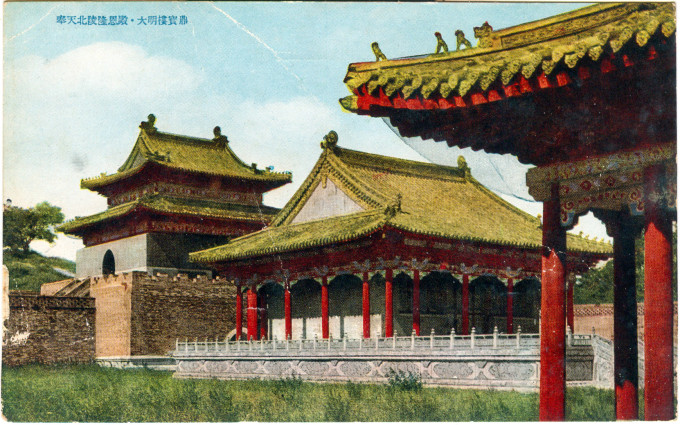
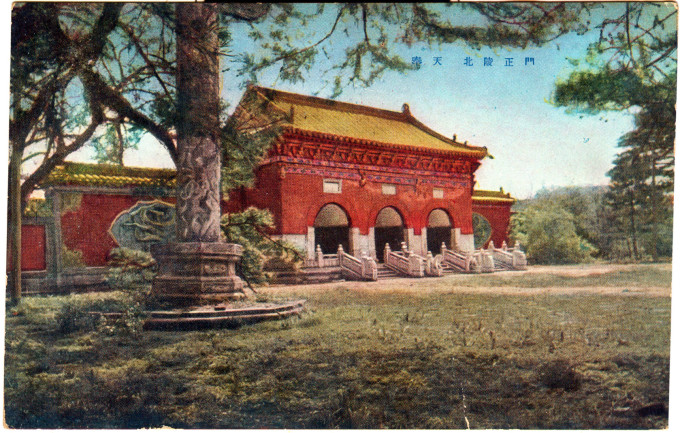
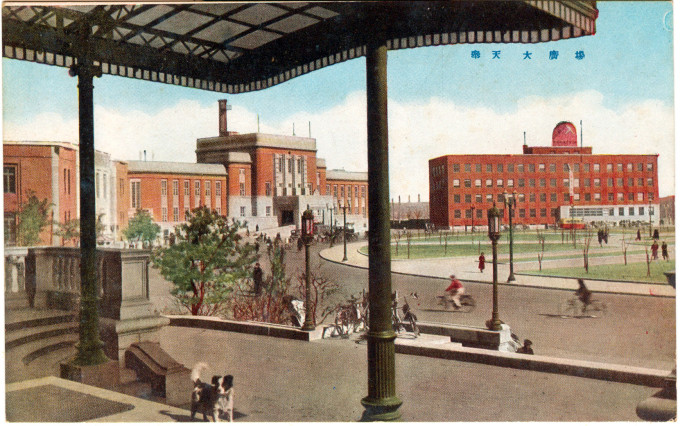
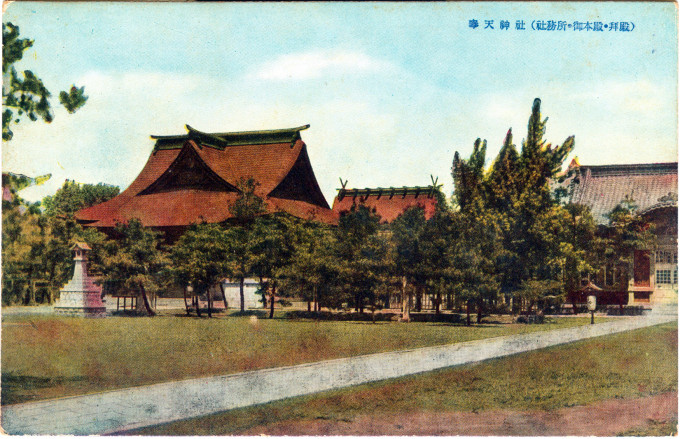
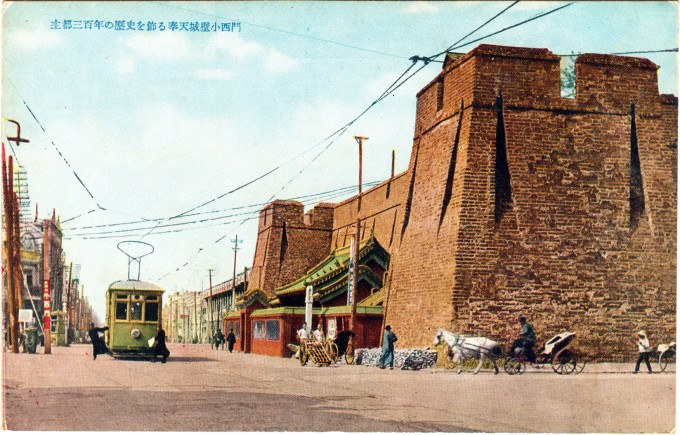
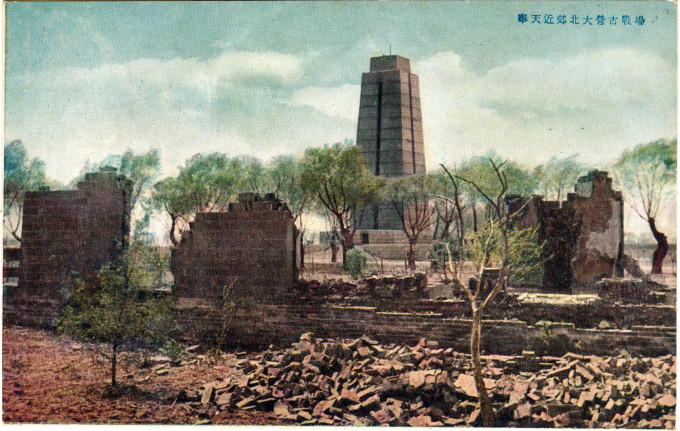
Pingback: Great Manchurian Exhibition, Dairen, Manchukuo, 1933. | Old Tokyo